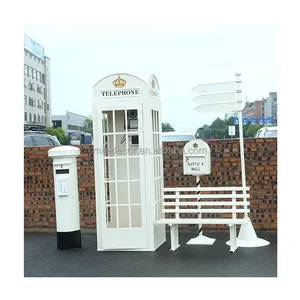Popular in your industry



























































Related Searches:
























































































Top categories
About 100000f supercapacitor
Exploring High-Capacity Supercapacitors
High-capacity supercapacitors represent a cutting-edge category of energy storage systems, engineered to discharge substantial power swiftly. These devices diverge from conventional batteries by employing electric double-layer capacitance for energy storage and release, enabling them to unleash intense power surges. This characteristic renders them supremely suitable for deployment in electric vehicles, renewable energy setups, and mobile electronic gadgets.
Engineered with advanced materials to augment surface area—a crucial determinant of charge storage capacity—supercapacitors accumulate energy when electrodes, known as anodes and cathodes, are exposed to an electric current. The conserved energy is promptly available for release, offering a swift and potent energy source for scenarios demanding immediate power.
Supercapacitors' substantial storage capabilities are invaluable in instances where swift access to large energy quantities is paramount, such as during surges in power demand or within hybrid vehicle systems. Their longevity and swift recharge qualities also make them a steadfast choice for frequent, prolonged use.
Varieties of High-Capacity Supercapacitors
The market offers a diverse array of high-capacity supercapacitors, each tailored with distinct features for specific uses:
-
Electric Double-Layer Capacitor (EDLC): Renowned for their high capacitance, EDLCs are optimal when substantial charge storage is necessary but space is at a premium. They find widespread use in renewable energy infrastructures, electric vehicles, and industrial machinery.
-
Pseudo-Capacitor: These supercapacitors employ transition-metal-oxide materials on their electrodes to achieve elevated capacitance levels. Pseudo-capacitors are the go-to for backup power systems, smart grids, and other scenarios where enduring reliability and performance are paramount.
-
Hybrid Supercapacitor: Merging EDLC and pseudo-capacitor technologies, hybrid supercapacitors strike a balance between energy density and cycle durability. They are apt for use in hybrid and electric vehicles, as well as in renewable energy storage and grid systems.
-
Flexible Supercapacitor: Crafted with pliable electrodes, these supercapacitors can be contorted or shaped to snugly fit into tight spaces. They are particularly suited for wearable technology, IoT devices, and other portable electronics where traditional, rigid supercapacitors are unsuitable.
Selecting the Right High-Capacity Supercapacitor
When choosing a high-capacity supercapacitor for your enterprise, several pivotal factors must be weighed to ascertain its performance and appropriateness. Begin by defining the application and its specific demands—be it a portable power source for consumer electronics or a robust energy storage system for industrial use.
Assess the operating environment of the supercapacitor. For challenging or fluctuating conditions, opt for models with superior durability features such as resistance to high temperatures or self-healing capabilities. Conversely, for more stable settings like powering domestic appliances, standard supercapacitors may be adequate.
The projected lifespan of the supercapacitor is another essential consideration. Choose a model that corresponds with the anticipated lifecycle of your product to circumvent frequent replacements or maintenance due to time-related degradation.
Finally, evaluate the cost-effectiveness of the supercapacitor. Although the initial outlay may surpass that of traditional capacitors, the long-term advantages such as lower operational costs from minimal maintenance and enhanced performance attributes should be factored in.
High-Capacity Supercapacitors on Alibaba.com
Alibaba.com distinguishes itself as a premier international marketplace that bridges buyers with a plethora of suppliers offering a wide range of high-capacity supercapacitors. The platform streamlines the procurement process by presenting comprehensive product details and supplier profiles, enabling businesses to pinpoint supercapacitors that fulfill their specific needs without compromising on quality or dependability.
Utilizing Alibaba.com’s intuitive interface and communication tools, purchasers can engage directly with suppliers to procure products that meet their technical and commercial criteria. Furthermore, Alibaba.com's Trade Assurance service provides added security by protecting payments until the delivery is verified as complete.
Companies aiming to expand their operations or innovate will find Alibaba.com's resources particularly beneficial. The platform grants access to an extensive selection of high-capacity supercapacitors, which can adeptly and efficiently facilitate energy management in devices from smartphones to electric vehicles with minimal energy dissipation.
Frequently Asked Questions About High-Capacity Supercapacitors
What are the principal factors to consider when selecting a high-capacity supercapacitor?
Key factors in choosing a high-capacity supercapacitor include the required energy density for power needs, the discharge rate for immediate energy access, and the physical dimensions to accommodate the intended application.
How does a supercapacitor's energy density influence its performance?
A supercapacitor's energy density dictates the volume of energy it can store per unit volume. A higher energy density typically translates to extended durations between recharges, which is preferable for applications that demand consistent power delivery.
Is it feasible to use high-capacity supercapacitors as battery replacements?
High-capacity supercapacitors may serve as alternatives to batteries in certain contexts, given their extended cycle life and superior efficiency. Nonetheless, their distinct attributes, such as rapid charging and accelerated energy delivery, may affect system compatibility.
Are various supercapacitors available, and how should one choose?
Indeed, there are multiple supercapacitor types, including EDLCs, Pseudocapacitors, Hybrid Capacitors, and High-Voltage Capacitors. Selection hinges on the specific needs of your application, such as a requirement for high energy density or operation at elevated temperatures.
What is the expected lifespan of a high-capacity supercapacitor?
The lifespan of a high-capacity supercapacitor is generally gauged in tens of thousands of charge-discharge cycles, although this can vary widely based on operational conditions, discharge rates, and the manufacturer's specifications.
What considerations are there for integrating a high-capacity supercapacitor into my system?
Integrating a high-capacity supercapacitor into a system requires attention to physical space, electrical connections, and compatibility with other system components. Adhering to the manufacturer's guidelines is advisable to ensure smooth and secure integration.
What applications commonly employ high-capacity supercapacitors?
High-capacity supercapacitors are frequently utilized in scenarios that necessitate rapid delivery or storage of substantial energy amounts, such as in electric vehicles, energy management systems, industrial machinery, and renewable energy storage solutions.
How can I ascertain the appropriate size for a high-capacity supercapacitor for my project?
To identify the suitable size for a high-capacity supercapacitor, evaluate the power demands and spatial limitations of your application, alongside the necessary discharge rate and the supercapacitor's anticipated cycle life.
Can high-capacity supercapacitors be tailored for particular applications?
High-capacity supercapacitors can often be customized in terms of dimensions, shape, energy density, and operational parameters to suit the unique requirements of an application.
What distinguishes an EDLC from an FDTS high-capacitor?
EDLC high-capacitors utilize a dual-layer electrode structure with an insulating layer in between, catering to applications with high-power density needs and high-temperature tolerance. FDTS high-capacitors incorporate an additional material layer that facilitates quicker charge and discharge cycles.
What safety precautions should be observed with high-capacity supercapacitors?
When using high-capacity supercapacitors, adherence to the manufacturer's usage and charging guidelines is crucial. Overcharging or causing a short circuit can lead to safety hazards due to their high energy density.
What steps should I take if my high-capacity supercapacitor is not performing as anticipated?
If a high-capacity supercapacitor is not meeting expectations, verify that it has been operated within its specified conditions and charged correctly. Should problems continue, seek advice from the supplier or consider an alternative capacitor type.



















































































































